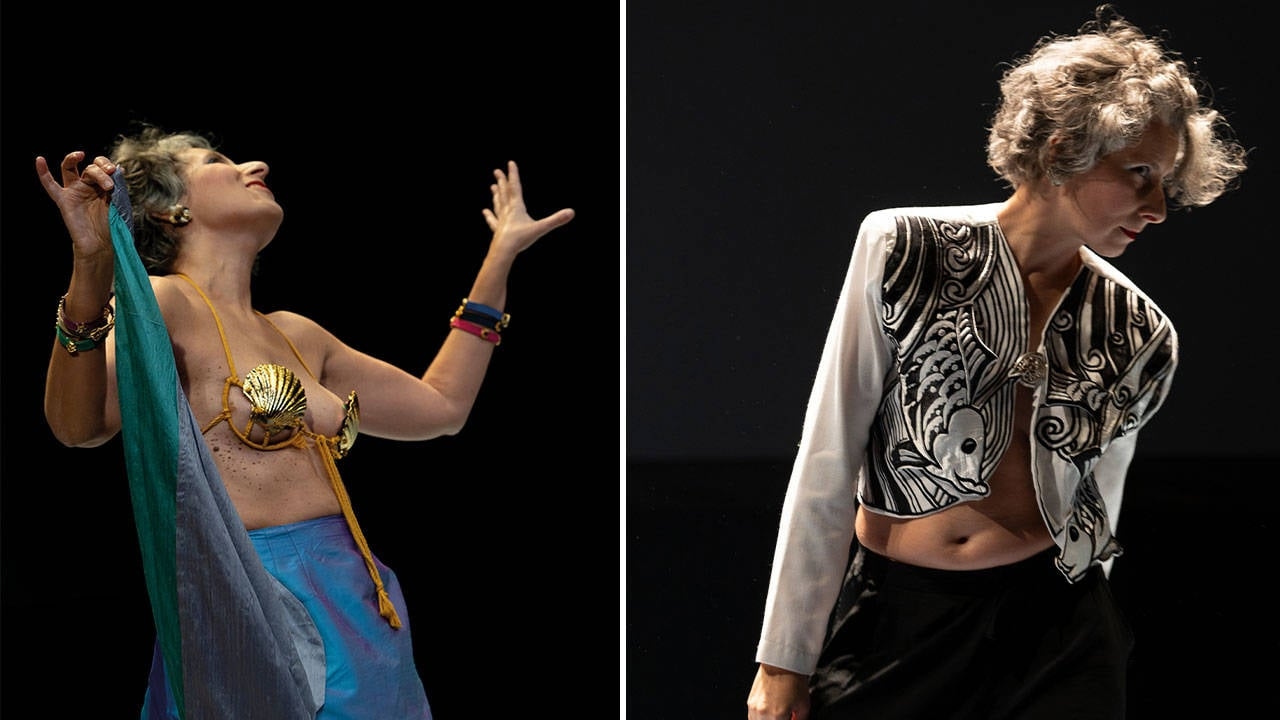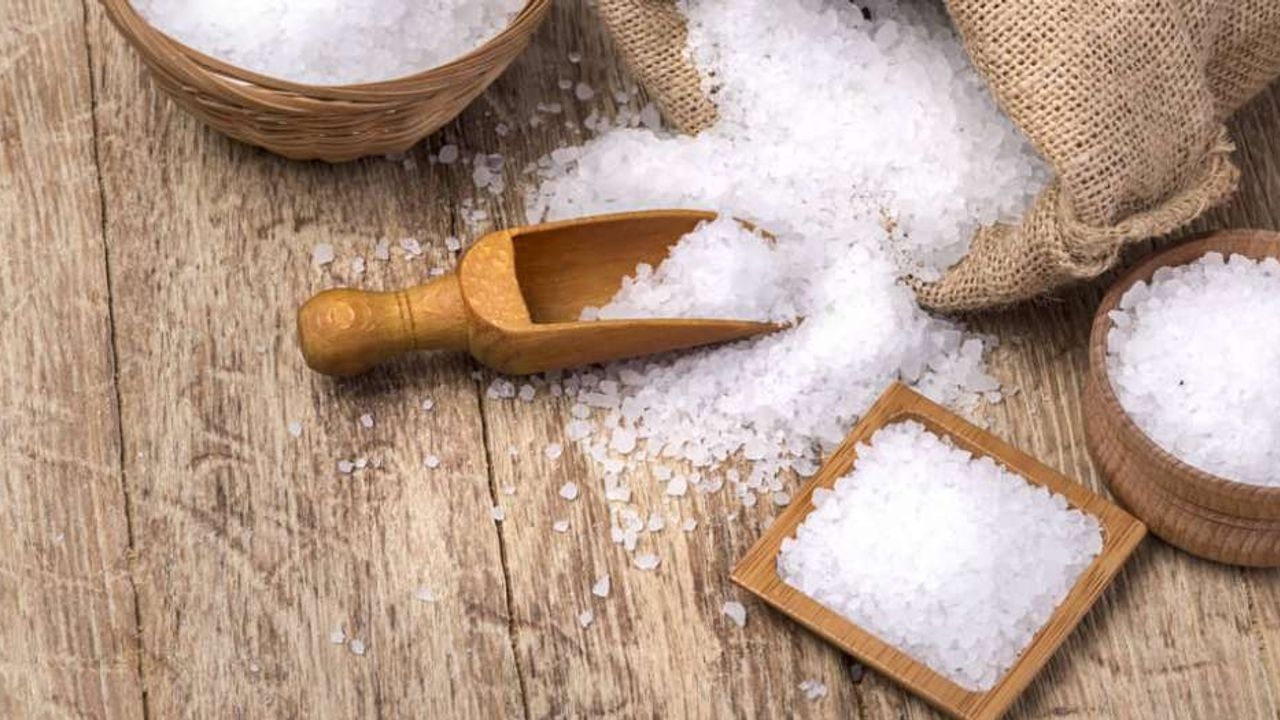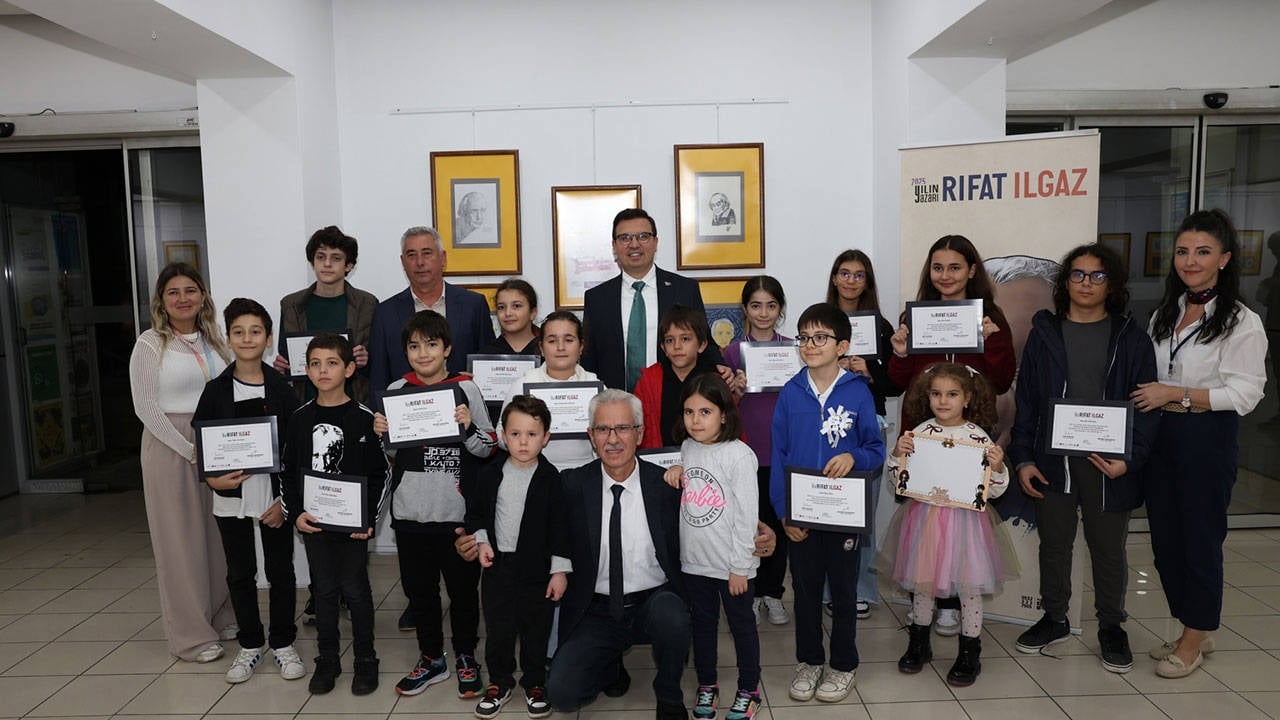Menopausal mermaids' journey across the ocean: Sweat, Sweat, Sweat

Bilge Su Yildirim
Sweat, Sweat, Sweat (English: Sweat, Sweat, Sweat) is a one-woman show in which Portuguese actress Sonia Baptista illuminates menopause, one of the most pervasive taboos in society surrounding the female experience, accompanied by images of mermaids and the sounds of the ocean. The play premiered in Etimesgut, Ankara, on October 11th as part of the 2nd International City Theatre Festival. As Bapista and I journeyed into the depths of the ocean of female identity, we discussed menopause, female aging, societal taboos, oceans, and mermaids.
Many people see the aging process as something "funny," "despicable," or even "pitiful." In your play, you challenge this perspective of patriarchal society. How does it feel to take this stance? How do audiences react to this bold stance?
For me, mastering my own narrative, my own story, and my own experience—being seen, being heard—is incredibly important. If I laugh, it's because I want to. If I cry, it's the same.
How strange that we, as women, have to be brave just to exist, to grow old, to grow old! Everything should be simpler, but it isn't. I haven't always been brave myself, but I don't really care what people think anymore. This freedom to not care is, I think, the element that audiences connect with most while watching the play.
There are many social taboos surrounding women's aging. Menopause is perhaps the most mocked of these. How does "Sweat, Sweat, Sweat" challenge this?
I combat prejudice, shame, and taboos because I demonstrate that menopause is another precious phase in a woman's life (or anyone born with a uterus). Doing so can be quite challenging, but it can also be liberating. From a sociopolitical perspective, this is essentially a public health issue; it needs to be addressed through laws, regulations, and rights. Governments and institutions should take this into consideration. More research needs to be conducted, more information needs to be gathered, medical training needs to be more focused on this topic, and more public support needs to be provided. These examples could be multiplied.
You combine theatre and dance in your play. This seems very specific to Portuguese culture... What do you think about this combination?
I'm not sure if this combination is actually Portuguese... Maybe it's more European... My tastes and interests are actually quite eclectic; I like to mix art forms and their influences. I'm inspired by many different things and enjoy using the tools of different artistic languages. Since I started creating my own work, over 20 years ago, I've always worked this way.
Why did you choose mermaid and ocean imagery to tell the story of an aging woman?
Mermaids are both women and monsters. They're like women in a constant state of transformation—both alluring and repulsive, captivating and terrifying. In this sense, they're powerful. We too must be strong, brave, and resilient, but we must also embrace our vulnerabilities, work with our flaws, and adapt. We must accept ourselves, make no apologies for our existence, and love ourselves deeply. As women, we must take care of ourselves.
I also criticize the idea in the play that the natural odor of women's genitals is associated with a "fishy smell." I find this degrading and offensive. In the play, I turn this very narrative on its head and celebrate women's natural, delicious, mermaid-like scent.
Maybe I should have asked this question at the beginning, but I saved it for last… What was your reason for wanting to tell a story about the aging process of women?
Because I, as a human being, a woman, and a queer woman, work from my own experiences. When I turned 50 and entered menopause, I realized there was a huge gap in this area. It was a lack of knowledge, a natural process that was never talked about. So I started talking to my friends and thinking about it. I realized I wanted to share my thoughts and experiences, bring this topic to the public sphere, and help others in the process. That's how Sweat, Sweat, Sweat came about.
BirGün





